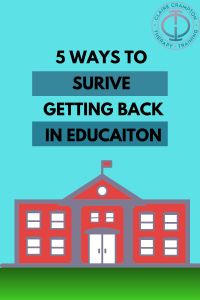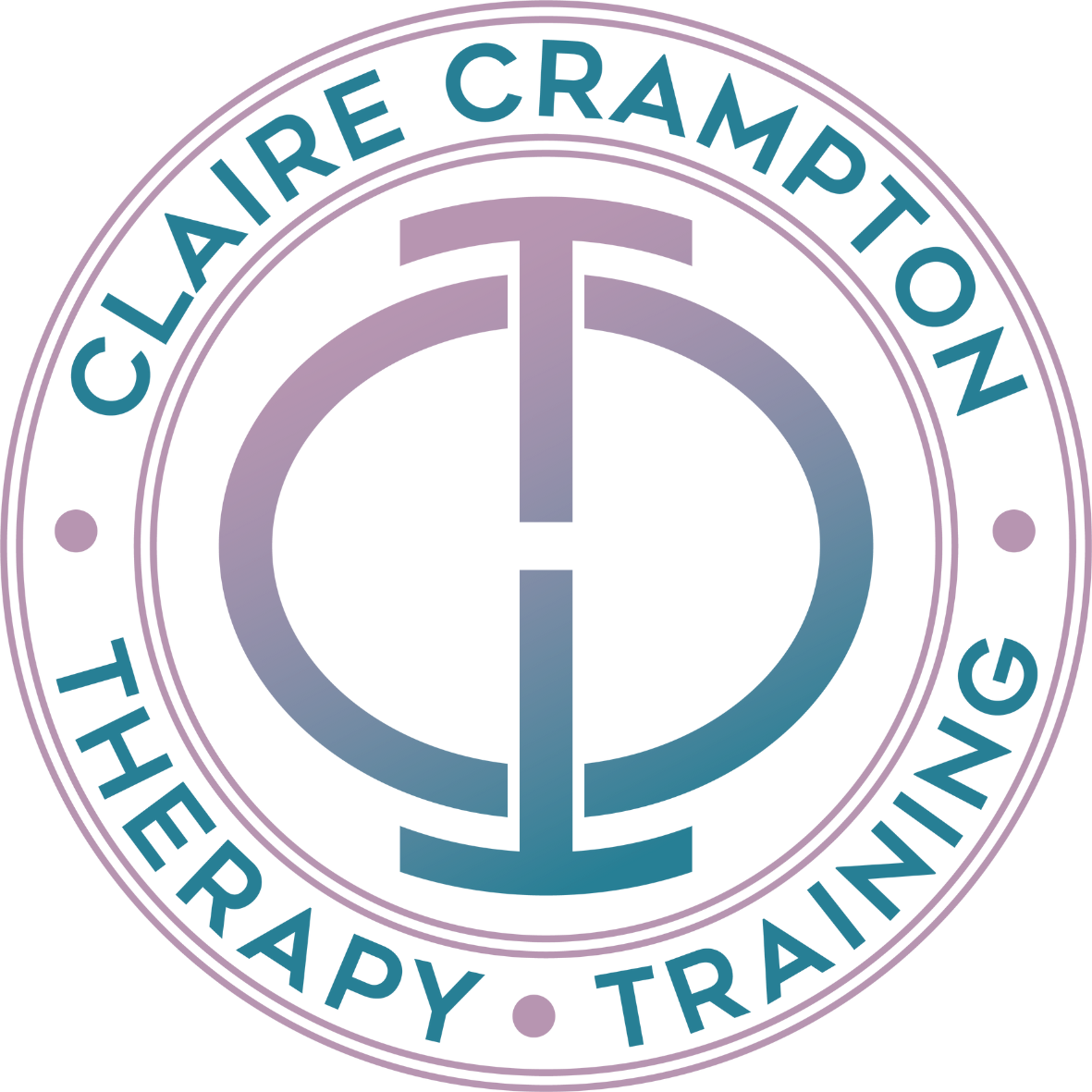
September brings with it a huge amount of stress and anxiety for adults returning to work in the education sector and for young people trying to cope in school, college and university.
I often work with clients who find transitions and changes difficult, with this time of year being very challenging.
They can feel on a precipice of disaster in the days before returning and often will experience the physical manifestations of this stress having poor sleep, feeling ill or having unexplained muscle pain, becoming snappy or frustrated with others, feeling tearful and having abrupt, unpredictable changes in mood.
If you are a student or a teacher here are 5 ways to help this time period feel more manageable.
1: Get out of your head-
Make a mind map identifying the areas which cause stress or worry, but also the positives about going back into an education setting.
These will be very individual and may include socialising, regaining a schedule etc.
Even from these 2 examples we can see that each element could fit into challenges or positives. Each of these can be further broken down, e.g socialising with teachers is positive but with students is stressful or scary. Knowing what to do and when during the day is good but waking early is not.
2: Take control-
A big element of fearing change and transitions is a lack of knowledge or sense of being out of control.
Look at your mind map, of the challenges or areas of worry what can you do to prepare?
Can you visit a space before it is busy? Can you incorporate positive moments consistently each day or week? What can you take with you to help?
Often people I work with will employ sensory tools to support themselves.
The logic behind this is that your brain is more likely to help you be calm if it feels safe.
You might wear a perfume which you associate with positive experiences, have things in your pockets to hold and fiddle with, consider your clothing so you can moderate your temperature and minimise sensory distress. It can be helpful to have mints or something to activate your taste buds. Carrying noise reduction earbuds or headphones can help reduce overwhelm.
Smell, Visual, Taste, Touch and Sound are all areas which help your brain regulate itself.
3: Who can help?-
Who are your people? Do you have other staff or students who help you feel more comfortable?
Are there adults who can help make adjustments or help you find people who can?
Often teenagers will sadly have negative experiences with teachers and members of school leadership and this can lead to the belief that adults in education can’t be trusted or relied upon.
Even if you haven’t found your people yet, keep an open mind that they exist.
Consider the people in your wider life that help you or you feel more comfortable with, what qualities do they share? Who might you feel less able to approach and why?
Sometimes we need someone in a type of translator role to approach these types of people. We might ask a tutor or colleague if we need to communicate with the school management team. It’s ok to ask for help formatting emails or scripts to use when asking for help or support.
4: Plan rest breaks-
Rest and recovery is very important all the time but especially during periods of extended stress. I recommend to clients to consider small moments they can grab but also larger scheduled breaks. Examples can be safe spaces on the school/ college/ Uni grounds, either purpose built spaces like sensory rooms, outdoor spaces or sometimes a staff member might provide somewhere away from people. These breaks are not just about the environment, they also include considering your body's needs. Do you need to drink, eat, make noise, or have quiet? Scheduling food and hydration can help people whose bodies are not good at reminding them
Larger breaks might be at weekends, is it best to leave the first weekends after starting back empty? Or you might consider what you might want to do in the next holiday coming up to help you feel rest is coming.
5: Consider Counselling-
Counselling might be a new idea to you but it can become a safe space to consider your needs and what might be helpful.
It can offer support during transitions and allow you to experience someone who is solely focussed on you (this doesn’t mean staring at you!) and exploring what individual hopes and challenges you face.
Therapy provides a time each week where things can happen at your pace in a way that feels helpful.
Do you need the world to slow down so you can process what is happening?
Do you want someone, for once, to keep up with how fast your mind is?
I believe there is the right therapist out there for everyone.
If you think we could be a good fit please do get in contact: Contact Me
Alternatively, you can use these directories to each for a good fit for you.
https://www.bacp.co.uk/search/Therapists
